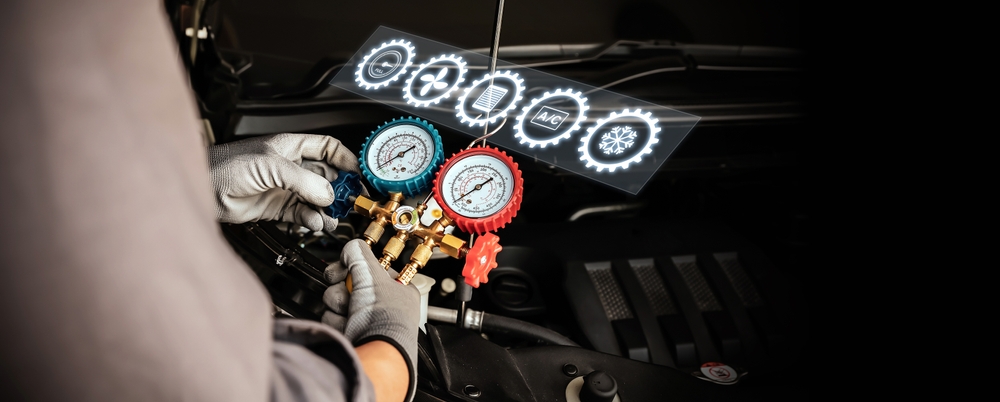Hands-On Auto Mechanic Training: Launch Your Career
Explore comprehensive automotive mechanic training designed to prepare you for a thriving career as an auto technician. This guide covers program length, training options, core skills like vehicle diagnostics and computerized systems, how to choose accredited schools, and the career paths available from shop technician to diesel specialist or business owner. Whether you're aiming to work on classic cars or modern electric vehicles, find practical advice to select the right program and advance your skills in a growing industry.

Training Duration and Practical Experience
Automotive mechanic programs vary in length depending on the credential and level of depth you choose. Short certificate courses can be completed in a few months, while full associate degree programs usually run from about six months up to two years. Many comprehensive curricula incorporate hands-on internships or apprenticeships so students gain real-world shop experience alongside classroom instruction.
Types of Automotive Mechanic Programs
There are multiple routes into the trade, each offering unique benefits:
1) Vocational and Technical Schools: These schools focus on applied skills, combining classroom lessons with shop-based training. Graduates typically earn certificates or diplomas tailored to immediate employment.
2) Community Colleges: Community college programs often grant associate degrees and include both technical training and general education courses, providing a broader educational foundation.
3) Apprenticeships: Learning on the job under seasoned technicians allows aspiring mechanics to develop practical skills while receiving structured, workplace-based instruction.
4) Manufacturer Training Programs: Many automakers run specialized programs that teach diagnostics and repair procedures specific to their vehicles and proprietary systems.
5) Online Courses: While they cannot replace hands-on practice, online classes are useful for theoretical study, supplemental learning, or specialization in newer topics like EV systems and advanced diagnostics.
Essential Skills Covered in Training
Automotive programs teach a wide array of competencies you will use on the job:
- Engine diagnostics and repair: Identifying engine problems, performing overhauls, and maintaining different engine types.
- Vehicle electrical systems: Working with batteries, starters, alternators, wiring, and increasingly complex electronic systems.
- Brake systems: Servicing and troubleshooting disc and drum brakes, ABS components, and related safety systems.
- Suspension and steering: Handling wheel alignment, balancing, and suspension repairs to ensure proper handling and tire life.
- Computerized diagnostics: Using scan tools and interpreting data from vehicle computer systems to pinpoint faults.
- Transmission systems: Repairing and maintaining both automatic and manual transmissions.
- HVAC systems: Diagnosing and fixing heating, ventilation, and air conditioning issues inside vehicles.
- Workshop safety: Following proper safety procedures, using personal protective equipment, and maintaining a safe work environment.
Choosing the Right Training Program
Pick a program that matches your career goals by considering these factors:
- Accreditation: Verify the program’s accreditation, such as recognition by organizations like the National Automotive Technicians Education Foundation (NATEF), to ensure industry-standard instruction.
- Facilities and equipment: Modern, well-equipped labs and diagnostic tools better reflect current shop environments and technologies.
- Instructor experience: Instructors with solid industry backgrounds can provide practical insights and mentorship.
- Job placement and industry ties: Programs with career services and strong relationships with local dealerships and repair shops can help accelerate your job search after graduation.
- Specialization options: If you’re interested in diesel engines, hybrids, or electric vehicles, look for programs offering relevant focused training.
- Cost and financial aid: Compare tuition, fees, and available scholarships, grants, or financial aid to find a program that fits your budget.
Career Paths After Training
Completing a mechanic training program opens several career options across the automotive sector:
- General automotive technician: Perform routine service and repairs in independent shops or dealer service departments.
- Specialized technician: Concentrate on a particular area like transmissions, brakes, or engine performance tuning.
- Diesel mechanic: Service and repair diesel-powered vehicles and heavy equipment, a field with steady demand.
- Auto body technician: Repair and refinish vehicle bodies after collisions and restore structural integrity and appearance.
- Service advisor: Work at the customer interface, diagnosing needs, estimating repairs, and coordinating with technicians.
- Shop owner or manager: With technical expertise and business skills, run or oversee a repair facility.
Investing in Your Future as a Mechanic
Automotive mechanic training is a practical investment in a stable career. As vehicle systems become more advanced—integrating electronics, software, and alternative powertrains—the need for well-trained technicians continues to grow. By selecting an accredited program, gaining hands-on experience, and keeping your skills current through ongoing training, you can build a successful career whether your interests lie in vintage restorations or cutting-edge electric vehicles.






